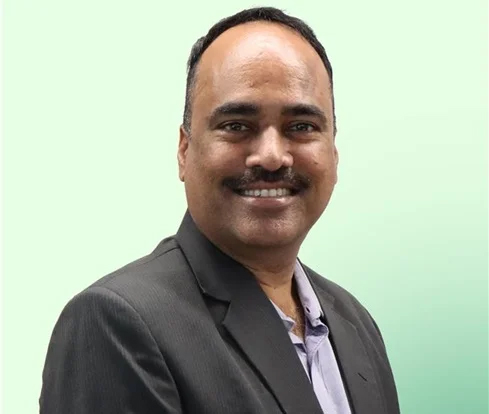With its idea of value-chain financing, Samunnati raises the scale of rural entrepreneurs
In a way, life has come a full circle for 42-year-old SG Anil Kumar. He started his career as a banker, with Canara Bank in a small village near Kurnool in Andhra Pradesh. He did varied tasks in the three-and-a-half years that he spent in that branch and he credits his branch manager for teaching him “everything that qualifies as rural banking.”
It is this knowledge of rural banking and understanding the financing needs of the rural people that Anil Kumar is putting to good use in his financial venture – Samunnati Financial Intermediation & Services Pvt Ltd – that seeks to intermediate and meet the requirements of money of villagers. The venture is all set to kick off in Tiruvannamalai in Tamil Nadu.
Bank experience
Anil Kumar had joined a mechanical engineering course in a college in Tumkur, Karnataka, when he got a telegram that informed him that he had cleared a bank recruitment exam. Family circumstances in mind, Anil Kumar dropped out of engineering college after just a few months to take up the job with Canara Bank. He used the time he had during his rural posting to complete a bachelor’s degree in History from Osmania University, by correspondence. He moved to Hyderabad to pursue higher studies, including preparing for the civil services examinations. He also wrote the probationary officers examinations for nationalised banks and was selected for Bank of India. Meanwhile, Anil Kumar got a job in ICICI Bank, in 1996, then among the foremost of the new-age private sector banks. In a way, it was at ICICI Bank that Anil Kumar’s career and personal life really took off. He met his future wife at the bank, and while handling different assignments and a series of promotions, he completed an MBA from Symbiosis, again through correspondence. Later, he did a full-time Master’s in Management from the Asian Institute of Management in Manila, the Philippines, on a sabbatical.
On his return, he joined the Rural Micro-Banking and Agri-Business Group in ICICI Bank under Nachiket Mor, where he was given the responsibility of creating the Micro-Finance Institution Development Team, to work on identifying partners and coming up with models in the micro-finance space.
“All new models, ranging from funding hawkers to film artists. They don’t have access to finance. Children of sex workers, people living with HIV… What not? The range was amazing. How you can use finance as a tool to cater to different needs of the people. That was so exciting,” recalls Anil Kumar.
He was deputed and then seconded to the IFMR Trust, after which he quit ICICI Bank to be full-time with the IFMR Trust and help set up IFMR Rural Channels and the KGFS, a rural financial services delivery model.
Anil Kumar was used to setting up things and the last year-and-a half at KGFS had become a bit mechanical. He realised that rather than finance a few households in a village, it would be better off helping everyone in the value chain. Thus was born the idea of Samunnati – or collective prosperity.
The concept
Anil Kumar explains the concept of value-chain financing. Take the dairy sector, he says. It is not enough if you provide assistance to households in a village to buy cattle. You need to think of how the milk produced by them will be collected. This person, depending on the volume of milk collected, will either require a moped or a three-wheeler or a small commercial vehicle, to transport the milk cans to the chilling centre. Then there is the issue of financing the chilling centre. There is also the question of getting the cattle owners’ animal feed. In each aspect of the chain – cattle for the households, aggregators of milk, transportation, chilling centre, animal feed – there was scope for financing and role for an intermediary like Samunnati that understood how this economy worked.
Tie up with Edelweiss
It has tied up with Edelweiss Financial Services for the loans. Samunnati will get its income from a revenue share with Edelweiss, which mimics the net interest margin.
“The differentiator that Samunnati will aim for is to move the economic activity that is happening in the value chain from a low equilibrium to a higher equilibrium. You are letting them do what they are good at but at a higher scale,” he says.
He adds that absence of a formal financing structure pushed these “native value chains” to operate at a low equilibrium.
After the dairy sector, Samunnati will look at farm mechanisation, where again Anil Kumar sees tremendous scope to push up the economic activity. Be it in helping farmers hold on to their stocks for a while longer after the harvest so that they get a better price or in enabling farmers to get implements such as de-weeders, transplantors or drip irrigation or solar pumps.
“Samunnati will focus on the agri and value chains that integrate well with the local economy,” says Anil Kumar. His venture has tied up with MicroSave, which has expertise in value chain financing in Indonesia, Latin America and the Philippines, on design and deployment.





Leave A Comment